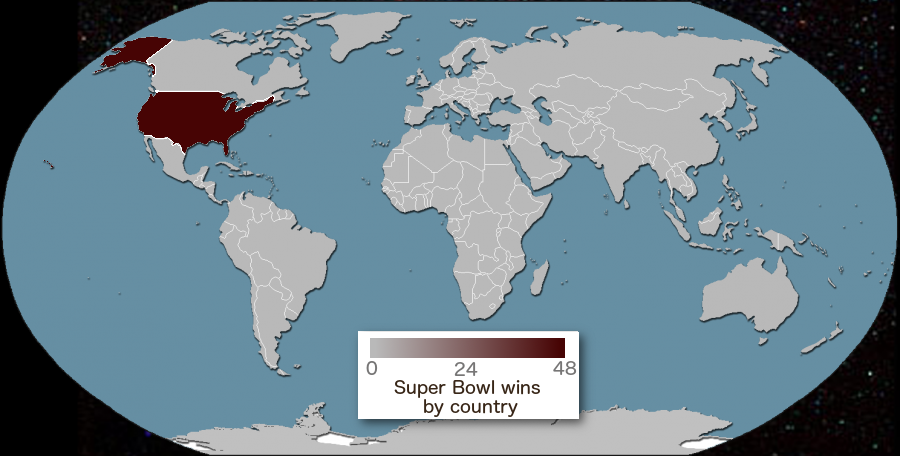笨狼發牢騷
發發牢騷,解解悶,消消愁納什意外去世,不幸。
納什了不起,一生也神奇,不過了解不深入,沒什麽多說的。隻是見到此中文網站的頭條,覺得也太土了:

媒體覺得納什不是什麽,電影才是真的。
世界各地皆如此,對比一下美國的傲慢:

ReCode To Vox
《華爾街日報》2015.05.31
South China Sea Buildup Benefits Asia, Says Beijing
Adm. Sun Jianguo 孫建國 notes military usefulness of islets China is constructing in the disputed Spratlys, but cites search and rescue, disaster relief and research as main interest

Adm. Sun Jianguo, deputy chief of the general staff of the People's Liberation Army of China, spoke about China’s island-building in the disputed Spratly Islands at the Shangri-La Dialogue security summit in Singapore
SINGAPORE—A senior Chinese naval commander has claimed new islands his country is building in the South China Sea will benefit the region, while stressing that such activities “fall well within the scope of China’s sovereignty.”
Noting the military usefulness of the islets China is constructing in the disputed Spratly Islands, Adm. Sun Jianguo, deputy chief of staff of the People’s Liberation Army’s general staff, said they would mainly enable China to provide “international public services,” including maritime search and rescue, disaster relief, and scientific research.
“There is no reason for people to play up the issue in the South China Sea,” Adm. Sun said on Sunday at the Shangri-La Dialogue security summit in Singapore, where discussions involving regional defense ministers and military top brass have been completely dominated by the implications of China’s island-building program. The new islands “do not target any other countries, or affect freedom of navigation,” he said.
The Philippines and other Southeast Asian countries have expressed alarm at the speed and scope of Chinese reclamation activities.
Malaysian armed forces chief Gen. Zulkifeli Mohd. Zin said Sunday that China should do more to explain its actions and intentions in the South China Sea, after Adm. Sun dodged questions on the subject. “We do not know what they are trying to do,” Gen. Zulkifeli said, referring to Beijing’s island-building activities. “It would be good if China can come out publicly and announce what they are doing so that they can be seen to be more transparent.”
But he also welcomed China’s willingness to keep engaging with rival claimants. “I’m reassured by what (Adm. Sun) said because he said China would continue to work on the Code of Conduct—that means China has not rejected that,” Gen. Zulkifeli said. “It is up to Asean (the Association of Southeast Asian Nations) and the claimant states to help them to do this.”
Adm. Sun struck a nonconfrontational tone as he defended China’s recent track record in the disputed sea, making no reference to U.S. Secretary of Defense Ash Carter’s recent criticisms of China, including remarks last week that China is “out of step with internal norms” in forging ahead with its island-building program despite the objections of its neighbors.
In Singapore yesterday, Mr. Carter called on all South China Sea claimants to halt land reclamation activities immediately. He also asserted that U.S. military forces would exercise their right to freedom of navigation in the South China Sea, and would ignore any Chinese orders to vacate areas surrounding the newly-built islands.
But Chinese military officers attending the summit, which is organized annually by the International Institute for Strategic Studies, a U.K.-based think tank, felt yesterday that Mr. Carter had been relatively mild in his criticism of China, and Adm. Sun’s speech suggested there was little appetite for a China-U.S. confrontation at this year’s event. The exchanges between U.S. and Chinese representatives had been far more acerbic at the 2014 summit.
Instead, Adm. Sun limited himself to warning other countries against “making irresponsible remarks based on one’s own subjective preferences,” and advised China’s smaller neighbors to “refrain from hijacking regional security for selfish gains.”
He also said that China may set up an ADIZ, or air defense identification zone, in the disputed region. “Whether we will establish an ADIZ in the South China Sea will depend on whether our maritime security will be threatened,” he said.
Adm. Sun didn’t answer a string of questions about whether Chinese rhetoric about seeking win-win scenarios in the South China Sea really matched China’s behavior on the ground, disappointing observers who felt that he had wasted an opportunity to explain Chinese intentions.
“It was not the performance of a rising power that wants to be seen in this region as competing positively,” said Bonnie Glaser, senior adviser for Asia at the Center for Strategic and International Studies, a U.S. think tank. “There were a lot of concerns expressed [about China’s activities] here this weekend. If nothing else, the Chinese need to begin answering questions, to engage the region, and they’re failing to do so. They will be very heavily criticized for that.”
【新民周刊 】
派德運動:韓國經濟起飛的第一桶金
日期:2015/5/13
詹小洪
如今的韓國,人均GDP接近3萬美元,外匯儲備高達3700億美元,為世界第六大外匯儲備國,已然為一中等經濟強國。然而在半個世紀前的60年代初,韓國還是極貧困的國家,人均GDP不到100美元,窮得連飯都吃不飽。
要搞建設,資金奇缺,不得不向中東輸出建築勞務、應美國要求被迫向越南派遣軍隊參加越南戰爭,以獲取寶貴的外匯。另外還通過政府間的協議,韓國向當時的西德派出過數以萬計的礦工和護士,史稱“派德運動”。正是這個“派德運動”為韓國的工業化乃至經濟起飛,掘得了第一桶金。
朝鮮戰爭剛結束的60年代初,韓國人口2400萬,全國200人以上的企業隻有54家,失業人數達240萬,很多大學畢業生都找不到工作。在煤礦,竟有24%的礦工是大學生,50%以上是高中生。醫院大量護士和護理人員也失業。而這時的西德勞動力緊缺。1961年12月,韓德兩國簽訂《經濟技術援助協定》,西德以政府和商業貸款的形式援助韓國,韓國則派遣礦工和護士到西德工作,說白了就是當廉價勞動力。在這種情況下,派德運動是緩解失業和賺取外匯的突破口,也成了韓國人大規模勞務輸出的首例。
1963年12月21日,作為派遣到西德的首批礦工,123名韓國人離開了漢城金浦機場前往西德的魯爾工業區礦山。要想成為派德礦工中的一位可不容易,他們是在700多人的競爭中脫穎而出的,報名者中不乏名牌大學畢業生,甚至有中途退學的大學生。當時韓國的主流報紙就像今天公布司法考試金榜題名者一樣紛紛登出了他們的名單。因大學畢業生占錄用者的20%,他們被稱為“紳士礦工”。
根據合同,韓國礦工一周工作5天,每天8小時,地上作業者的收入在1964年為每天20.20馬克,地下為30-39馬克。有礦工回憶說:“我們在潮濕狹小的礦井裏幹活,有不少人在用炸藥炸礦時送了命。”而當西德員工坐在酒吧裏休閑時,韓國礦工的業餘生活卻隻有在宿舍旁邊的空地踢一踢足球。盡管如此,在工業化萌芽時期,162.5美元的月薪足以讓他們付出艱辛的勞動。
韓國政府在這個時期還將護士派遣到德國工作。據派德韓國護士回憶,她們每天工作在9小時以上,休息時間通常得不到保證。以1972年為基準,月薪為281.50馬克。她們憑借對年老患者的精心看護和熟練快速的工作能力贏得了西德人的好評。她們甚至在西德醫院裏承擔清洗屍體的工作。
據韓國國家統計廳資料,1963-1977年,韓國共向西德派出54批次,7936名礦工, 11057名護士。最多的1973年,西德有6000多名韓國護士。據韓國媒體報道,派德韓國員工往往將收入的80%寄回家,這不僅為韓國提供了寶貴的外匯,還激發了韓國國民“克己精進”的熱情,成為創造“漢江經濟奇跡”的巨大精神動力。據統計,在派德運動期間,韓國礦工和護士年均創匯5000萬美元,占派德初期韓國GNP的2%。
1964年12月10日,訪問西德的韓國總統樸正熙夫婦在魯爾地區的漢博恩煤礦公司大禮堂接見了300名韓國礦工和護士,由礦工組成的樂隊演奏韓國國歌時,與會者因哽咽無法再唱下去,樸正熙總統說:“即使我們看不到,我們也要為子孫後代打下繁榮的根基……”此時演講中斷了,因為充斥現場的哭聲讓總統夫婦和隨行人員也都泣不成聲。
派德運動中,惡劣的工作生活條件,低下的收入,屈辱的待遇,使不少韓國勞工離開了德國。據報道,1966年,發生了首批中去西德的韓國護士就有不少偷渡到美國和加拿大,1969年又有231名韓國護士偷渡到第三國。1967年7月還發生了韓國礦工集體經東柏林投奔朝鮮的事件。
韓國向西德派遣的礦工和護士中,60%的人選擇留在西德或移民北美,7983名礦工,如今隻剩下了1250名定居在德國。
新消費係列報告一:這樣的消費大潮你怎能錯過?
新消費係列報告二:從大眾到個性:日本消費的百年變遷
中國經濟的另一麵:大眾消費時代到來




